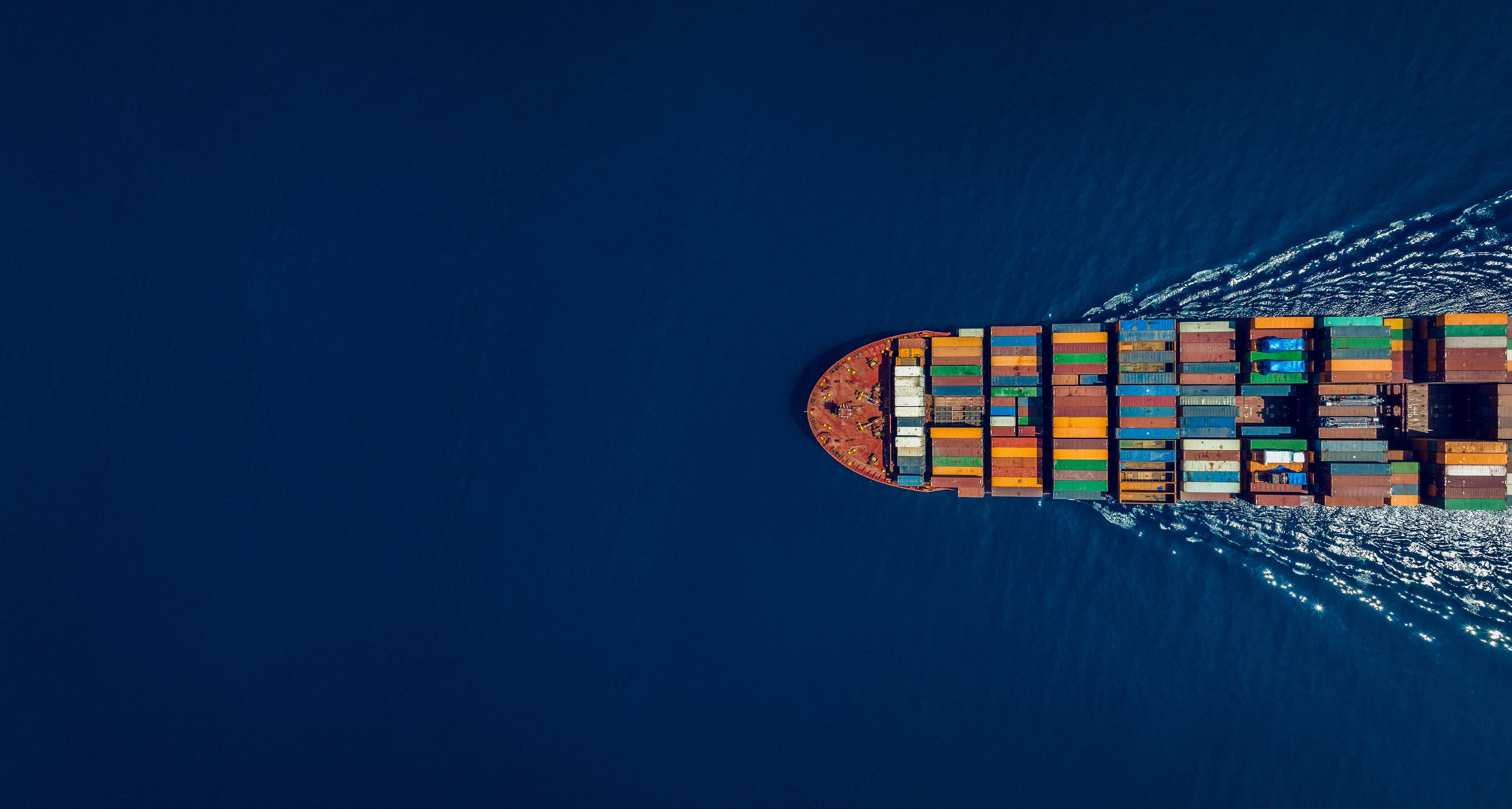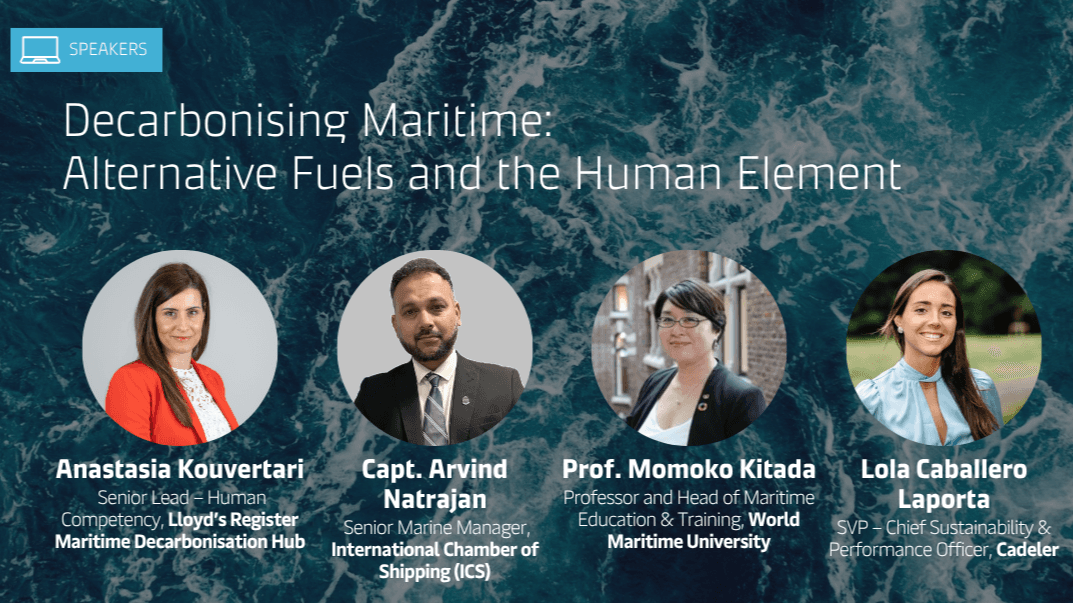[Webinar Recap] Decarbonising Maritime – Alternative Fuels and the Human Element
June 2025

We recently moderated a thought-provoking discussion that brought together regulatory leaders, shipping experts, and academics to explore how alternative fuels and human behaviour are reshaping the future of maritime sustainability. Below is a summary of the key points from each guest speaker.
Fireside Chat 1 – Training on Alternative Fuels – What are the recent developments?
This session highlighted the urgent need for cohesive, inclusive, and forward-looking training frameworks to support the maritime transition to alternative fuels like methanol, ammonia, and hydrogen.
"Training is where we all unite," Natassa Kouvertari (Lloyd’s Register Maritime Decarbonisation Hub) reminded us that training is the common ground across all stakeholders – owners, regulators, crew, and industry experts. It’s the foundation for shared understanding, safety, and readiness. She also emphasized on the imperative of Just Transition so that all seafarers irrespective of rank and background are not left behind in the transition. This call was also reflected in the MJTTF training considerations report and in the recent MMMCZCS project that examined the competencies needed for the use of ammonia as a fuel.
Capt. Arvind Natrajan (International Chamber of Shipping) shared key updates following HTW 11, including the interim and generic training guidelines being developed for all alternative fuels and emerging technologies and updates to IGF Code training under STCW to incorporate methyl/ethyl alcohols by 2027. He also stressed the importance of ship-specific familiarization of being of paramount importance to ensure safety. He stressed as key challenge the issue of focusing extremely on technology and not on competent people, along with the absence of international standards to ease seafarer mobility.
Both speakers emphasized the need for speed and unity – training must keep pace with regulation, innovation, and onboard realities.
Fireside Chat 2 – Energy Efficiency & Human Behaviour onboard
This panel focused on how human behaviour, leadership, and culture are powerful drivers of energy efficiency at sea – and how organizations can move from intention to action.
"Energy efficiency is a team’s game" Lola Caballero Laporta (Cadeler) underscored the importance of cross-functional/cross-organizational collaboration in energy efficiency initiatives as well as pointing out that the key driver from an owners perspective is both compliance, but also very much economic and achieving a competitive advantage by having the lowest carbon footprint. She shared important insights from Cadeler’s experience in incorporating behavior-based workshops to their energy efficiency initiatives and how they are building a platform to gather energy efficiency ideas from both vessel crews and shore staff, embedding ownership and innovation into their culture. She also emphasized the need to pair behavioral initiatives with investment in technology to track real impact of fuel/energy management and guide decision-making.
Prof. Momoko Kitada (World Maritime University) offered a comprehensive view on cultivating an energy efficiency mindset across all levels, while also highlighting critical competencies we need to develop among our seafarers to strengthen their abilities to adapt and manage change. She highlighted that changing behaviors requires embedding efficiency into daily operations by integrating energy efficiency into toolbox talks, handovers, and performance discussions, agreeing with Lola that energy-efficiency is a recurring theme and not a one-off discussion. She also stressed the importance of promoting the clean energy transition through education, not just operations – ensuring maritime careers are appealing and accessible, especially for women and underrepresented groups.
Closing Reflections:
Across both sessions, one truth emerged: Decarbonization is both a matter of technologies/fuels AND a matter of people. Whether it’s alternative fuel training or energy-saving behaviours, transformation begins with learning, and learning begins with collaboration.
As Dr. Joanna-Eugenia Bakouni concluded, "Decarbonization is not the finish line… it’s a journey. And every journey begins with taking the first step."
